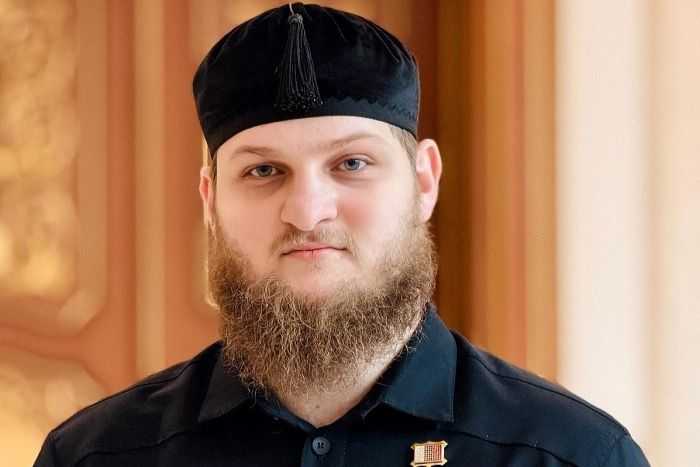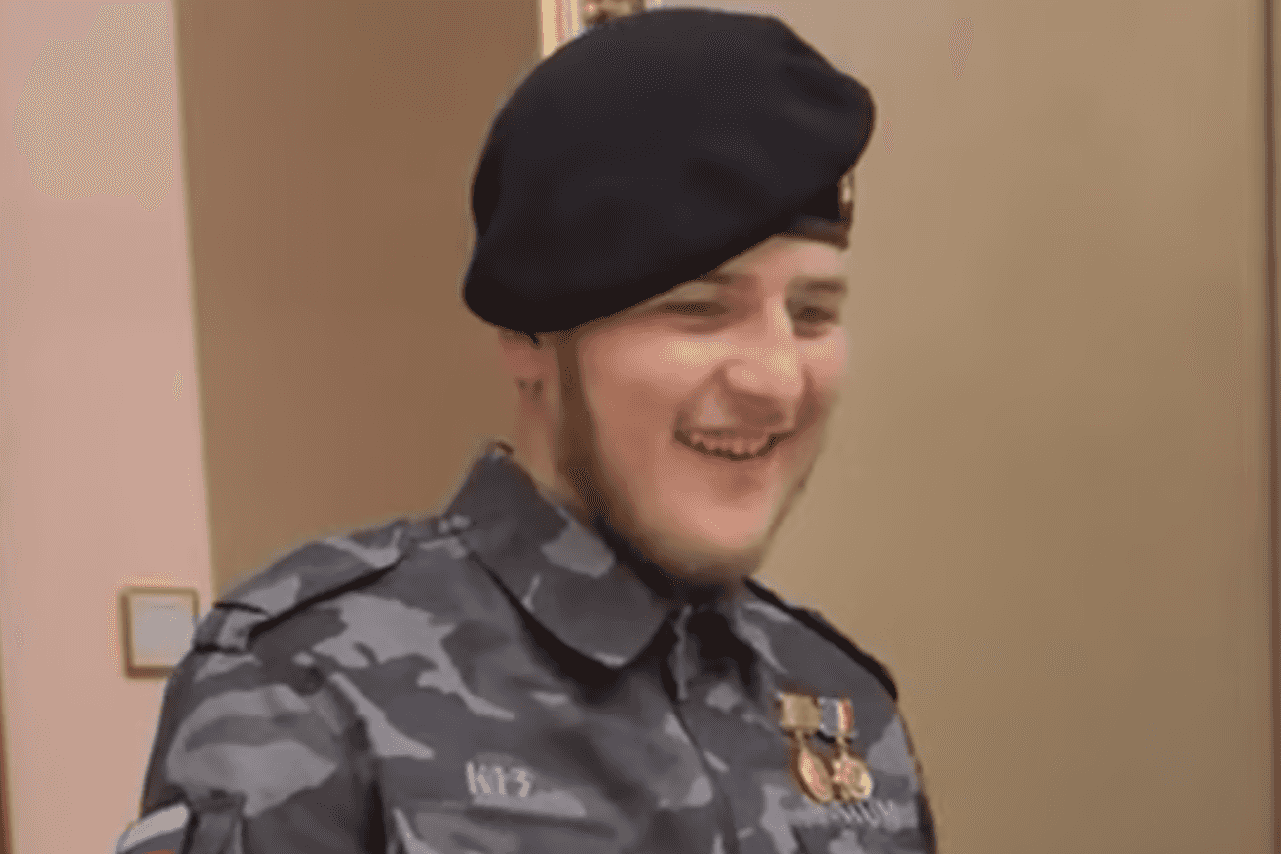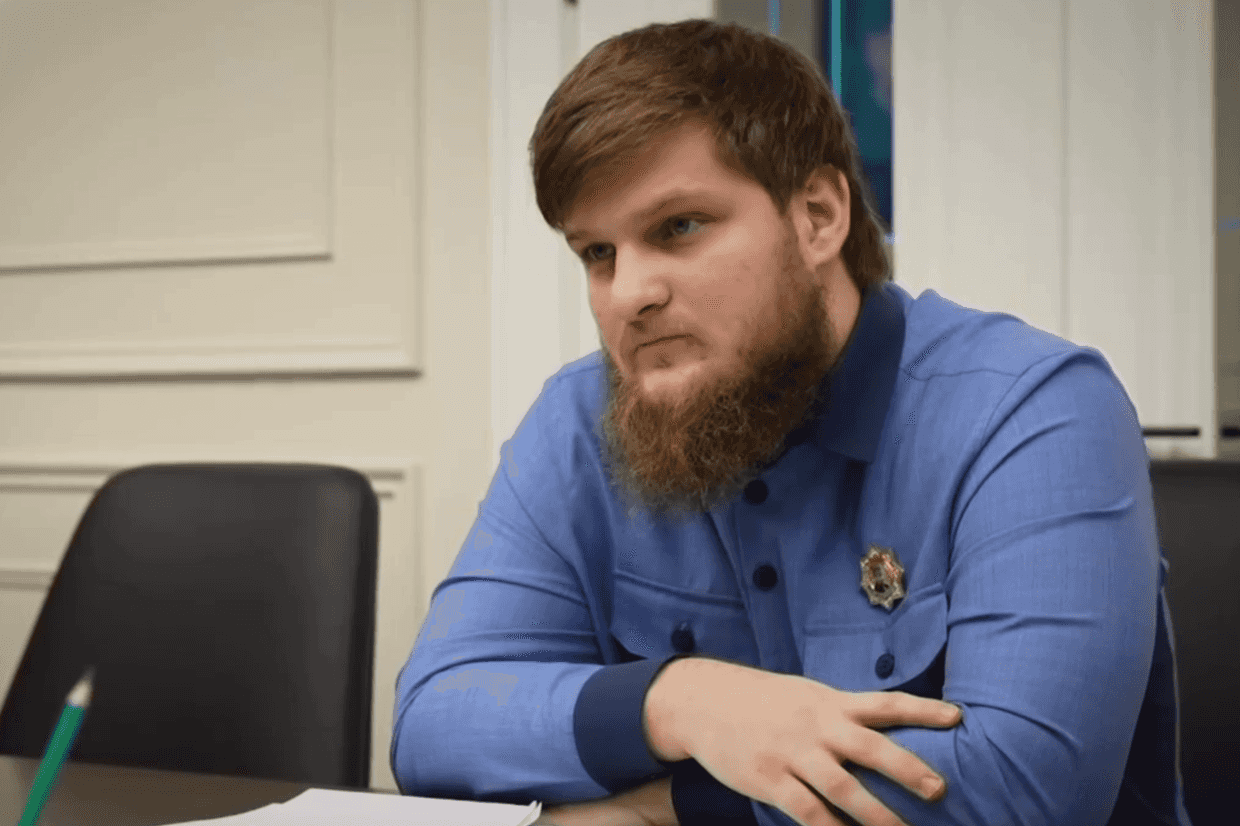Keeping up with the Kadyrovs: Who’s who in Chechnya’s ruling family
Members of Ramzan Kadyrov’s family, both immediate and distant, have extended their reach into almost every corner of Chechnya’s corridors of power.

When Ramzan Kadyrov officially became head of Chechnya in 2007, he had already been in de facto control of the republic, with his closest relatives and associates occupying key positions in the administrative, security, and financial hierarchy. Since then, this personalist regime has only strengthened.
Kadyrov is not merely the head of the region. He is the sole holder of power, as well as the custodian of the republic’s cultural and economic space. In his hands are concentrated the levers of governance, repressive mechanisms, and ideological influence. However, he delegates part of his authority to his closest relatives, thus creating a clan-based system of rule.
Unlike other Russian regions, where posts are distributed among officials along party or bureaucratic lines, in Chechnya, key positions are held by members of the Kadyrov family or individuals closely bound to them by personal loyalty. Power here is not transferred up a career ladder, but rather according to the principles of loyalty and kinship. In essence, under Moscow’s patronage, a quasi-monarchy has formed in the republic — the ruling Kadyrov family, much like the former Assad dynasty in Syria, has concentrated all threads of governance in its hands.
Kadyrov has openly stated that he will not tolerate externally imposed appointments and that, when selecting leaders in the region, the degree of their kinship to his father, Chechnya’s first president Akhmat Kadyrov, is taken into account. It is hardly surprising then that, according to investigations, a significant portion of the Chechen elite consists of Kadyrov’s family members. For instance, in 2018, the BBC estimated that out of 158 Chechen officials, nearly 47 were Kadyrov’s relatives. By 2022, the number of close and distant kin in public service exceeded 50 people — ranging from government employees and MPs to security guards and even heads of farming cooperatives.
By appointing clan representatives to all key positions, Kadyrov ensures absolute loyalty. At the same time, Kadyrov does not feel safe even among other Chechen families, so only individuals whose personal loyalty is beyond doubt are admitted to power — mainly his closest relatives. Their lack of professionalism or limited experience is not viewed by the head of Chechnya as an issue: if they do not cope in one position, they are simply moved to another. Frequent reshuffles help conceal the low qualifications of the appointees and maintain the illusion of effective governance, while real control remains concentrated in a narrow circle around the head of the republic.
Ramzan Kadyrov has many children — according to different sources, between 12–14. A Moscow-based political scientist specialising in the Caucasus who asked to remain anonymous told OC Media that the correct number is 14.
‘Medni [Kadyrov’s official wife] holds the status of mother only to six daughters. The rest of the boys have different mothers’, he explained.
For several years now, Kadyrov has gradually been introducing his older sons and daughters into positions of power.
The female face of the clan
In Chechnya’s patriarchal environment, women do not officially lay claim to key positions, but the roles women in Kadyov’s family have taken are nonetheless significant.
Medni Kadyrova, 46

Ramzan Kadyrov’s official wife, Medni Kadyrova, has for many years been engaged in cultural and charitable projects. In 2009, she founded the Islamic fashion house Firdaws, later headed by daughter Aishat. Medni remains in the background but is considered the guardian of the family hearth and its substantial wealth.
Aishat Kadyrova, 26
Kadyrov’s eldest daughter, Aishat, was the first of his heirs to be appointed to an official position. In 2020, at the age of 21, Aishat became Deputy Culture Minister. Just a year later, she was promoted to ministry head — breaking the federal record as the youngest regional culture minister in Russia. Ramzan claimed at the time that his daughter had already gained experience managing large projects.
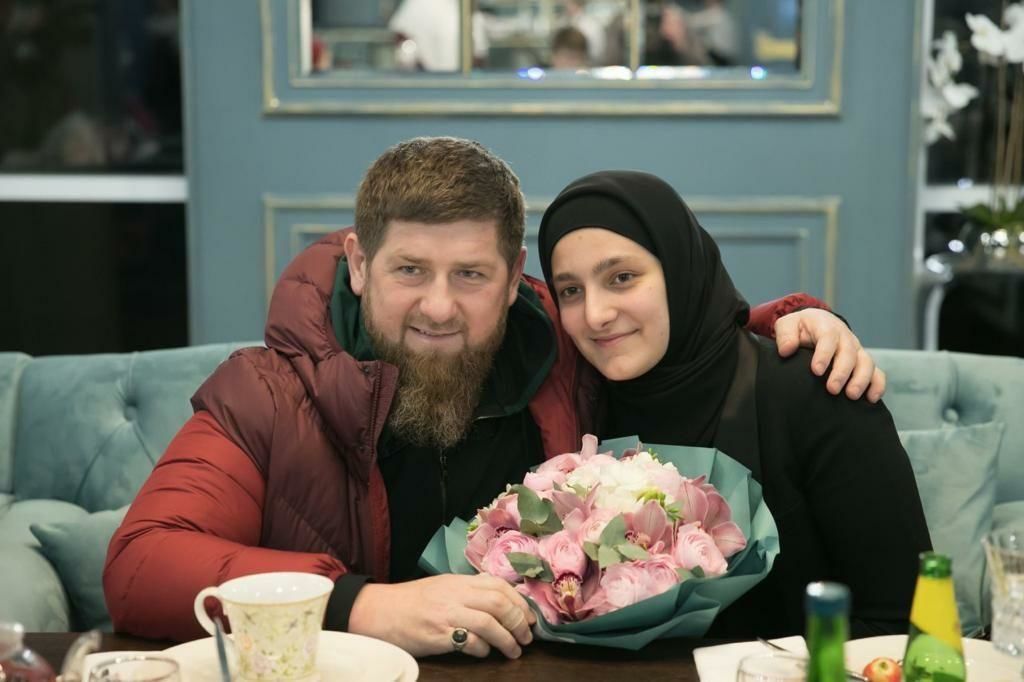
In 2023, Aishat was appointed to another high-ranking post — Deputy Prime Minister in charge of the social sector. In this role, she oversaw education, culture, and healthcare in Chechnya. However, she did not remain in the post for long: in February 2025, Aishat announced her resignation from the government to focus on developing the Firdaws fashion house. According to the official story, Aishat had become ‘tired’ of public service and returned to the family business founded by her mother.
However, the Moscow-based political scientist disagrees with this analysis.
‘I believe this was also Kadyrov’s decision, who, despite celebrating secular and religious holidays — including Orthodox ones — still attempts, especially now in light of his illness, to present himself more as a Muslim leader’, he told OC Media.
‘The fact that he has distanced his wives from any influence — and there are many of them — and that his daughters followed suit, suggests he is changing his approach in favour of an Islamic attitude towards women. That is, he expects them to engage in something unobtrusive. Even if it is business, he does not want it to be something like fashion design and such. I think that probably the other daughters will also be sidelined once they realise the sons-in-law are controllable’, he continued.
The Head of the Assembly of the Peoples of the Caucasus, Ruslan Kutaev, described Aishat as ‘a spirited but modest girl'.
‘The fact that [Kadyrov’s daughters] were introduced into positions of power was not their initiative — it was the Kremlin’s. In Chechen society, it is not acceptable for women to hold such responsible positions or be part of male-dominated circles. Therefore, it could not have been Ramzan Kadyrov’s own initiative’, Kutaev told OC Media.
‘It was his handlers, those to whom he is accountable, who made this decision, because the agreement is not with him, but with his family. Just like it was with his father. This agreement and these obligations have been inherited, and so power in Chechnya is wielded by those who made the deal’, he said.
All three adult daughters of Kadyrov are now married, and the choice of their spouses clearly carries political significance. Aishat married Viskhan Matsuev several years ago — the son of Ramzan Kadyrov’s schoolmate and classmate. The young son-in-law immediately received high status: he currently holds the post of Deputy Prime Minister and simultaneously serves as Minister of Agriculture.
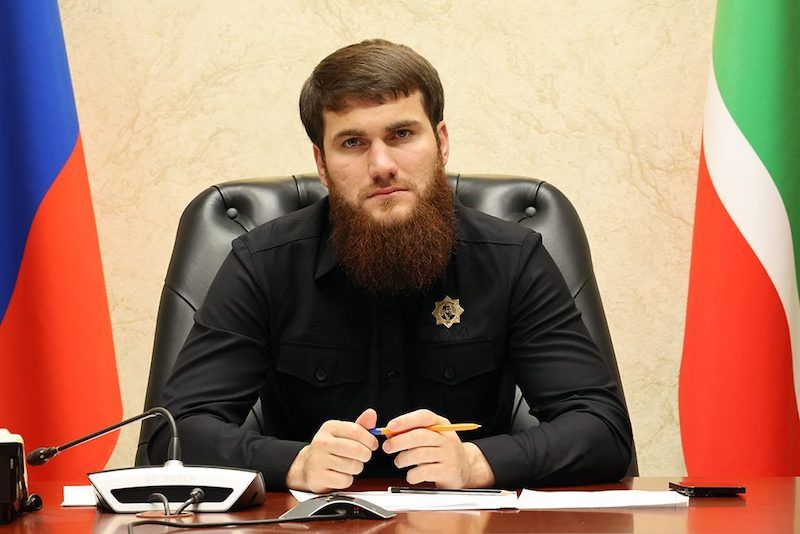
Khadizhat (Karina) Kadyrova, 25
At the age of 20, Ramzan Kadyrov’s second daughter, Khadizhat (Karina) Kadyrova, became head of the Department of Preschool Education in Grozny City Hall. By that time, she had already become known as the youngest hafiza (memoriser of the Quran) in the republic and had graduated from school with a gold medal. There is no information confirming she has a higher education despite the fact that, according to law, in order to be department head, higher education is required.
In early 2024, Khadizhat received a promotion — becoming First Deputy Head of the Administration for Social Projects.
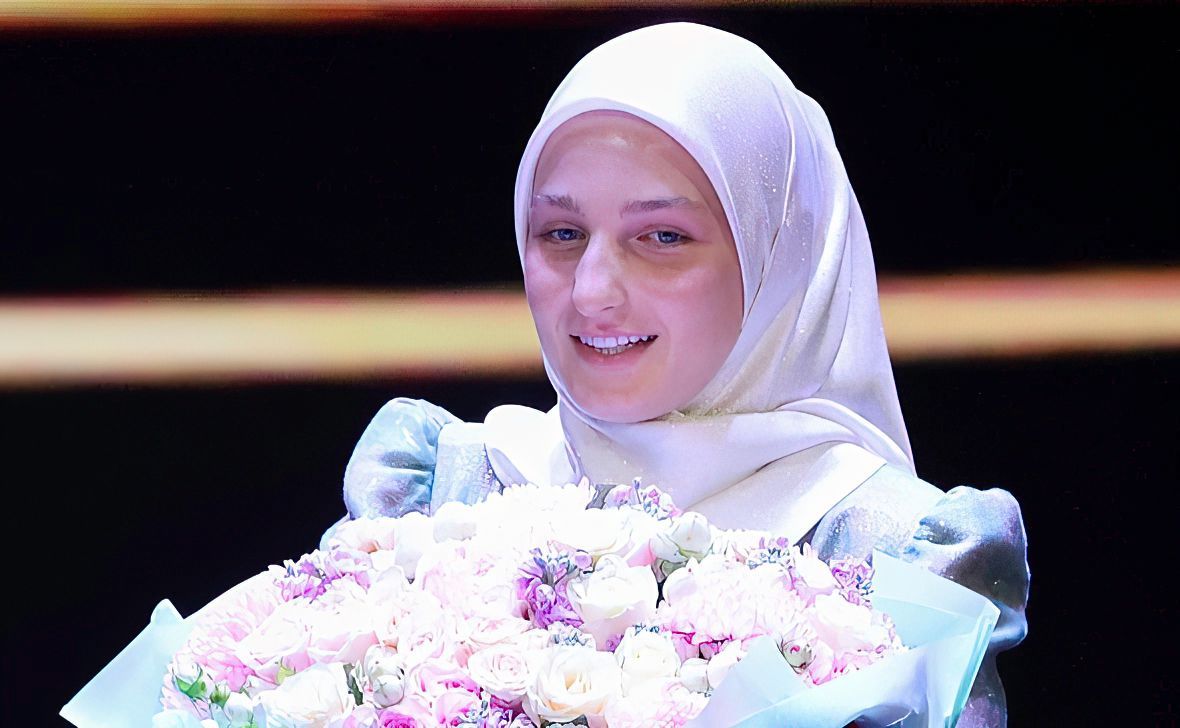
Khadizhat often participates in public events: for example, she represented Chechen youth at the COP28 climate summit in Dubai and is a member of the council for the preservation of the Chechen language.
She is married to Health Minister Adam Alkhanov. This marriage sealed an alliance between the Kadyrov family and a powerful security clan: until 2023, Adam Alkhanov’s father Ruslan headed the Interior Ministry — now he is deputy head of the Main Directorate for Countering Extremism of the Russian Interior Ministry.
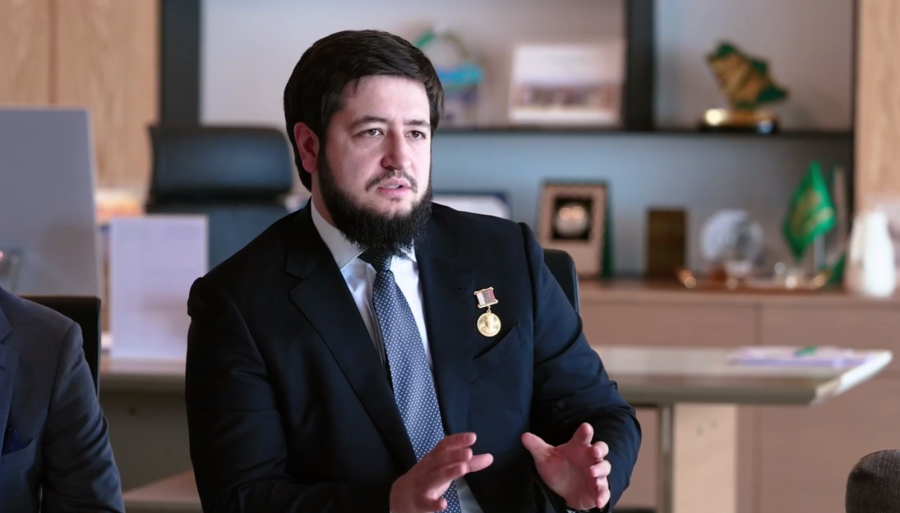
Khutmat Kadyrova, 22
The third daughter, Khutmat Kadyrova, also entered government at a very young age. In 2022, at the age of 20, Khutmat was appointed Deputy Head of the Secretariat of the Head of Chechnya — in essence, Deputy Head of Ramzan’s personal office. She was tasked with overseeing the healthcare sector, including rehabilitation centres for post-COVID patients.
Khutmat has also held more exotic roles: previously, she managed the family dairy farm for which her father jokingly referred to her as ‘Russia’s youngest farmer’ and even served as director of the Grozny dolphinarium. Unlike her sisters, Khutmat is not particularly public — she carries out her new duties quietly, remaining in the shadow of the family clan.
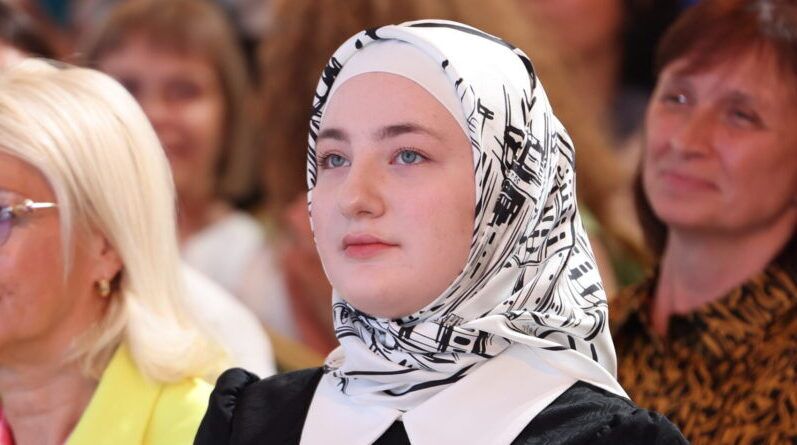
Khutmat married Lom-Ali Sadulaev — the nephew of another long-time associate of Kadyrov. Sadulaev works in the healthcare system as Deputy Head of the Chechen Mandatory Health Insurance Fund.
Tabarik Kadyrova, 20
Unlike her older sisters, Tabarik has focused on business rather than politics. She heads the company Irs Group, which is engaged in retail trade outside shops, tents, and markets; a Grozny taxi firm; and, according to legal entity databases, is listed as the head and founder of Omikron 96 LLC, the main activity of which is the operation of restaurants and cafes.
In 2022, she came of age and immediately married Ramzan Vismuradov, a member of the family closest to Kadyrov. The son of Abuzayd Vismuradov, a childhood friend and long-serving head of Kadyrov’s personal security, 28-year-old Ramzan Vismuradov was appointed Minister for Youth Affairs shortly before the wedding, though he had previously only managed the Akhmat sports club.
Harold Chambers, a North Caucasus analyst and PhD student at Indiana University, told OC Media that it is difficult to determine how much actual influence the other adult daughters of Kadyrov have since their activities are mostly limited to public events.
However, he noted that even seemingly minor sectors — such as the healthcare sector overseen by Khadizhat Kadyrova — are important because they serve as channels for corruption and money laundering.
Kadyrov’s other daughters are still too young and appear in public only at family events.
The heirs of the ‘padishah’
Akhmat Kadyrov, 19
In addition to his three eldest daughters, Ramzan Kadyrov’s sons have also begun to integrate into positions of power. His eldest son, 19-year-old Akhmat (named after his grandfather, Akhmat Kadyrov), has been featured in official chronicles since his youth.
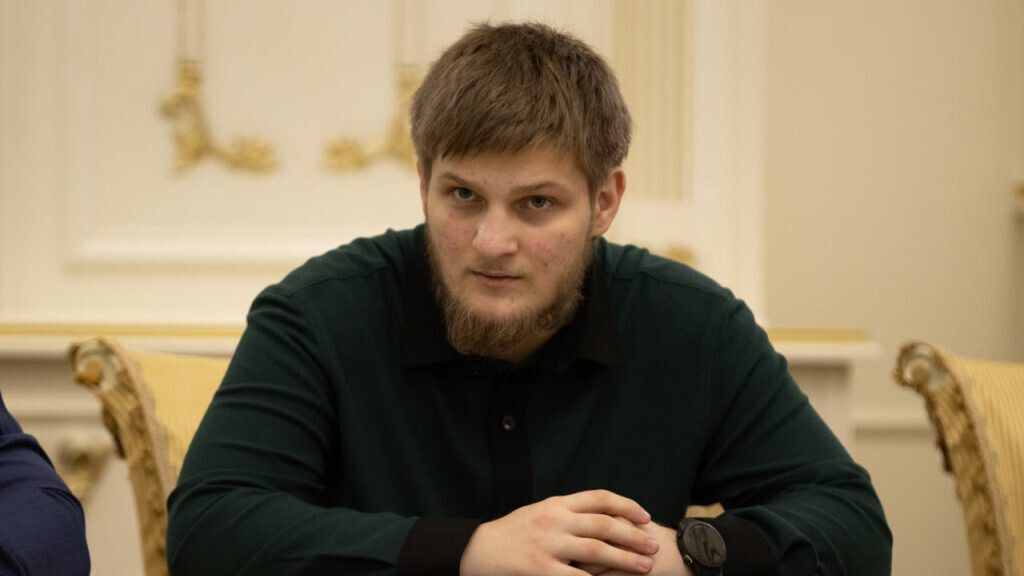
In 2022, at the age of 16 and still a schoolboy, Akhmat became the head of all children’s and youth organisations in the republic as chair of the regional branch of the new Russian Movement of Children and Youth. The federal Education Ministry even supported the appointment, despite his young age.
The following year, he was appointed First Deputy Minister of Physical Culture and Sports, and in 2024, he became the ministry’s head.
Upon gaining his most recent posting, Akhmat immediately formed his own ‘team’: as his deputies, he invited Umar Daudov — son of parliamentary speaker Magomed Daudov — and Akhmat-Hadzhi Delimkhanov — eldest son of Amkhad Delimkhanov, the youngest brother of Chechen Parliamentary member Adam Delimkhanov. Thus, at the level of the younger generation, the familiar triangle of influence — Kadyrov-Delimkhanov-Daudov — is already being reproduced.
As minister, Akhmat is responsible for the development of sport and patriotic education among the youth, and he has been active in public, welcoming federal guests, meeting with students, overseeing projects of the Akhmat Kadyrov Foundation named after his grandfather, and undertaking foreign trips — for instance, he visited Azerbaijan, Jordan, and the Gulf countries as a young representative of Chechnya.
Akhmat got married in 2023, at just 17 years old: the wedding ceremony was lavish, and on the eve of the event, he received a personal blessing from Vladimir Putin. It is unknown who he married.
Zelimkhan (Ali or Eli) Kadyrov, 18
Ramzan’s second-eldest son is 18-year-old Zelimkhan (known in the family as Ali or Eli). He is less prominent in public life but is beginning to acquire titles as well.
In March 2024, Zelimkhan became Head of the Boxing Federation of Chechnya and the MMA club Akhmat. In June of the same year, Ramzan Kadyrov arranged his marriage at the age of 17 — again, with Putin’s blessing.
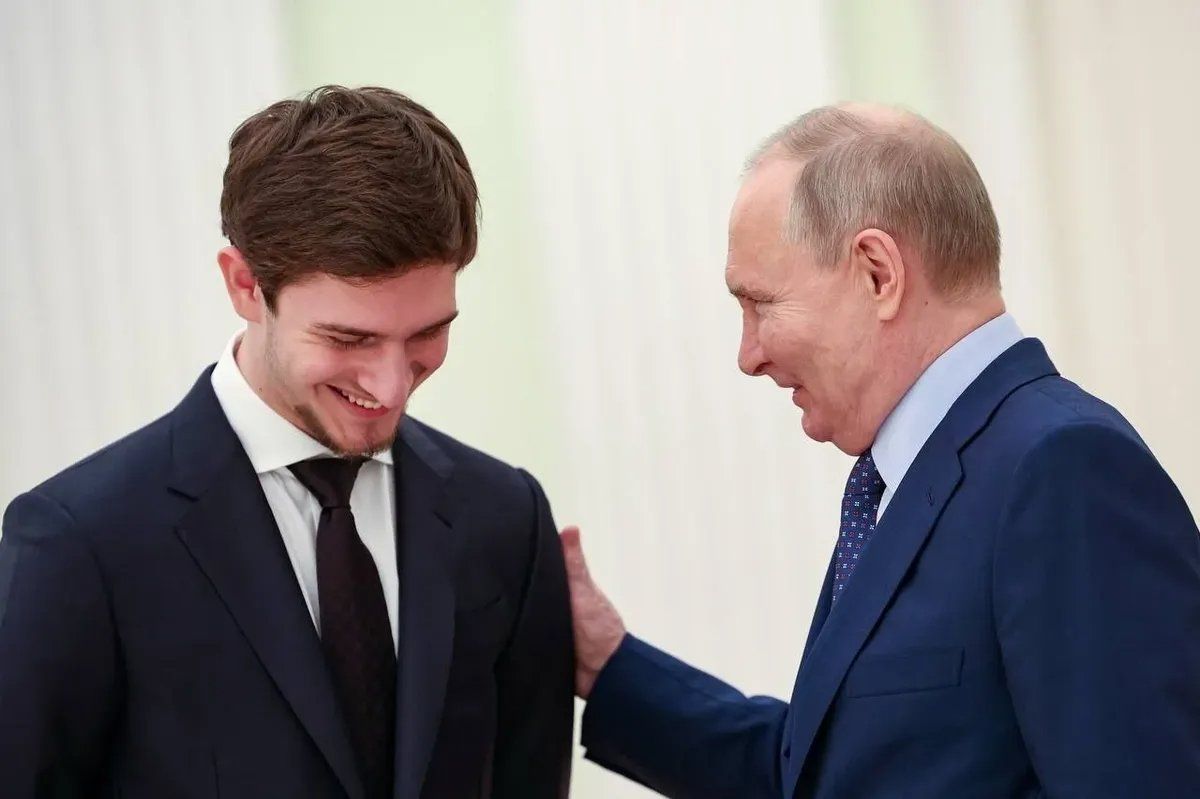
‘He is intellectually different from his brothers. He even has a sense of humour. When you read his posts, you can see that the person knows how to joke, can respond — if a member of his family is insulted — but not offensively, rather competently. And he does it live, meaning he writes it himself, not someone else’, a Caucasus-based political analyst who wished to remain anonymous told OC Media.
‘Eli stands out from all his brothers. I think he tries to keep his distance. It seems to me that choosing him as a successor would be obvious. But he himself doesn’t want that. He likes to go out, he likes to travel’, the analyst continued.
Adam Kadyrov, 17
The third son of Kadyrov — 17-year-old Adam — had his ‘moment of fame’ in autumn 2023 when Ramzan Kadyrov published a video showing Adam brutally beating detainee Nikita Zhuravel — accused of burning a Quran — in a pre-trial detention centre. Instead of condemning the act, Ramzan openly expressed pride in his son’s actions: he declared that Adam was developing ‘mature ideals of honour, dignity, and defence of his religion’. Moreover, shortly after the beating, the father showered his son with awards.
Then 15, Adam was awarded the title Hero of Chechnya and received several orders of merit. Several Russian regions — Tatarstan, Karachay-Cherkessia, and Kabarda-Balkaria — also hurried, under Moscow’s guidance, to honour Adam with official decorations, reinforcing his image as a ‘defender of the faith’.
Gaining such high-profile recognition, Adam Kadyrov soon found himself in a high-ranking position. In November 2023, the 15-year-old was appointed Head of Security for the Head of Chechnya — effectively Ramzan’s personal security service. This was the very same position that had once been Ramzan’s own first step on the path to power.

In official statements, Adam is referred to as ‘supervisor’ of security units — including the battalions named after Baysangur Benoevsky and Sheikh Mansur, as well as the Special Forces University in Gudermes. In practice, this means he is listed within military and security structures, although he does not directly command them due to his age. Nonetheless, such appointments place Adam at the centre of propaganda: he is regularly shown in military uniform at meetings and training exercises.
In April 2025, Adam unexpectedly assumed one of the republic’s most important posts — Secretary of Chechnya’s Security Council. Previously, the Security Council had been headed by Ramzan Kadyrov’s nephew, Khamzat Kadyrov, but he was quietly removed and replaced by Adam. Interestingly, there was no official announcement about the replacement: the decree of appointment has yet to be published.
‘The most important figure among Kadyrov’s children is undoubtedly Adam’, Chambers said, noting that while Aishat Kadyrova once held greater prominence, she lost any influence after leaving the government.
Chambers also highlighted that Adam’s appointment to a key post brought him straight into the limelight, ‘especially considering he is the only son involved in the security sector’.
However, he noted that while Adam’s older brother Eli is limited to his role as head of the boxing federation, this is still a significant position as ‘it is in fact one of the structures for recruiting new members into the Kadyrov system’.
In addition to their official roles, all three of Kadyrov’s sons have demonstratively participated in the military and other activities: in 2022, Ramzan sent his underage heirs to the frontlines of Russia’s full-scale war in Ukraine (naturally accompanied by security), and in 2023, he took them with him on a pilgrimage to Mecca. That same year, the brothers jointly received foreign Islamic figures — for example, they attended a meeting with Yemeni sheikh Habib Umar. Thus, the younger Kadyrovs are simultaneously ‘legitimising’ themselves in the eyes of various audiences — from military and religious circles to officials and ordinary citizens.
Extending the clan network
Kadyrov’s sisters, nephews, and other relatives are also firmly embedded in the power structure. Ramzan’s two elder sisters, Zulay and Zargan, have held high-ranking posts in the republican leadership for more than ten years. Zulay Kadyrova serves as Deputy Head of the Office of the Head and Government of Chechnya, while Zargan Kadyrova aide to the head of the republic on preschool education.
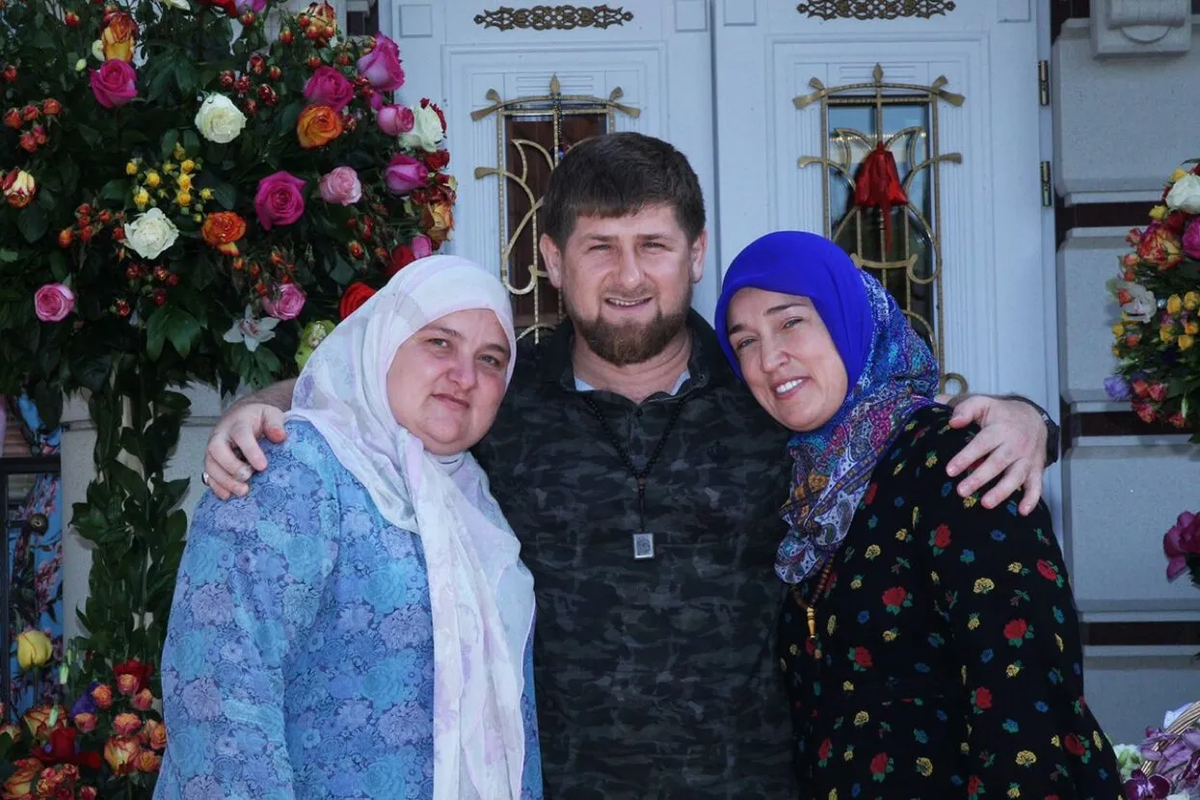
Zulay’s husband, Salman Zakriev, has held the post of First Deputy Speaker of the Chechen Parliament without interruption since 2008. Their family is also deeply involved in political and administrative affairs: their son, Ibragim Zakriev, became one of the youngest mayors in Russia at the age of 27, heading the city of Grozny. Two years later, in 2020, he was promoted to Head of the Administration of the Head of Chechnya.
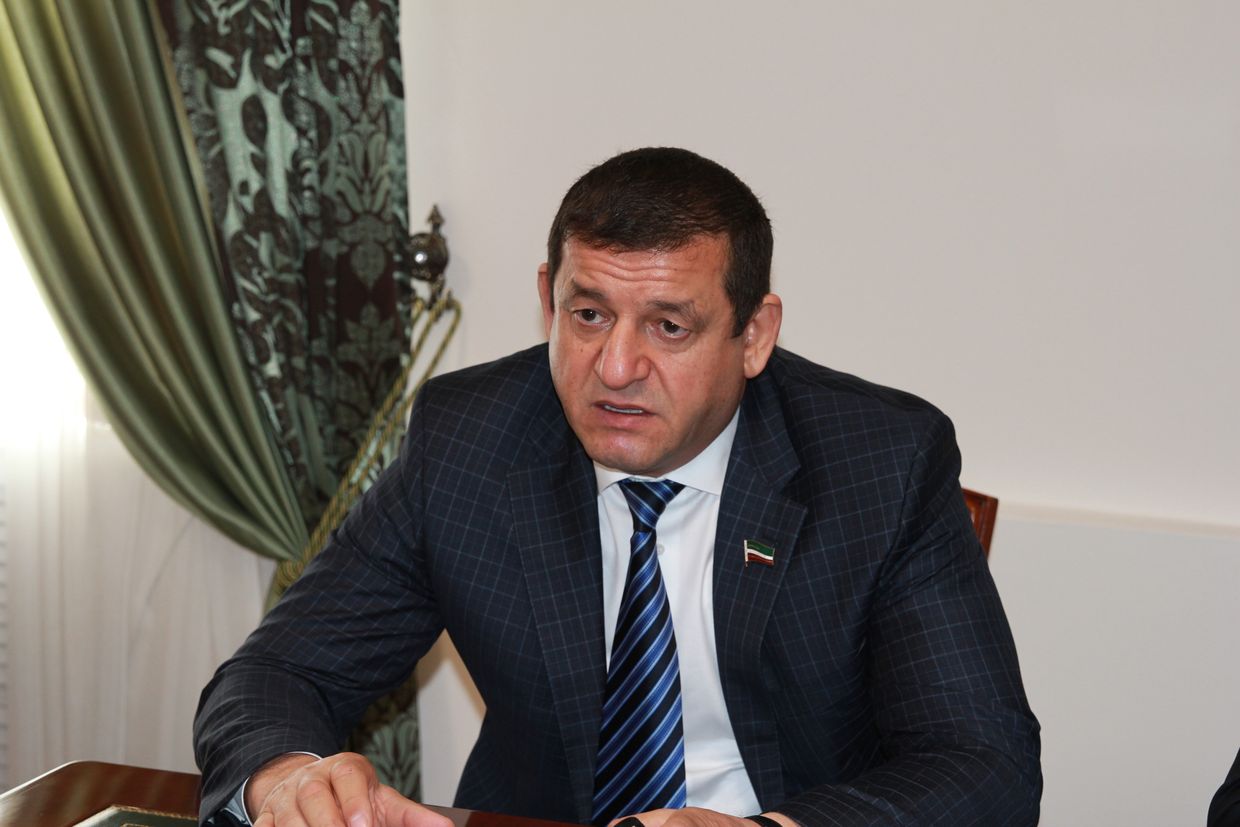
Another nephew of Kadyrov, Khamzat Kadyrov (son of Ramzan’s late elder brother Zelimkhan), headed a district administration for a time before, at the age of 23, becoming Minister of Sports and, subsequently, Minister of Property and Land Relations. In 2024, Khamzat Kadyrov took up the post of head of the Chechen Security Council, replacing his own relative in this role — cousin Turpal-Ali Ibragimov, who left to become Head of the Shali district.
However, Khamzat Kadyrov did not last long as head of the Security Council; as mentioned previously, this post is now held by Kadyrov’s son Adam.
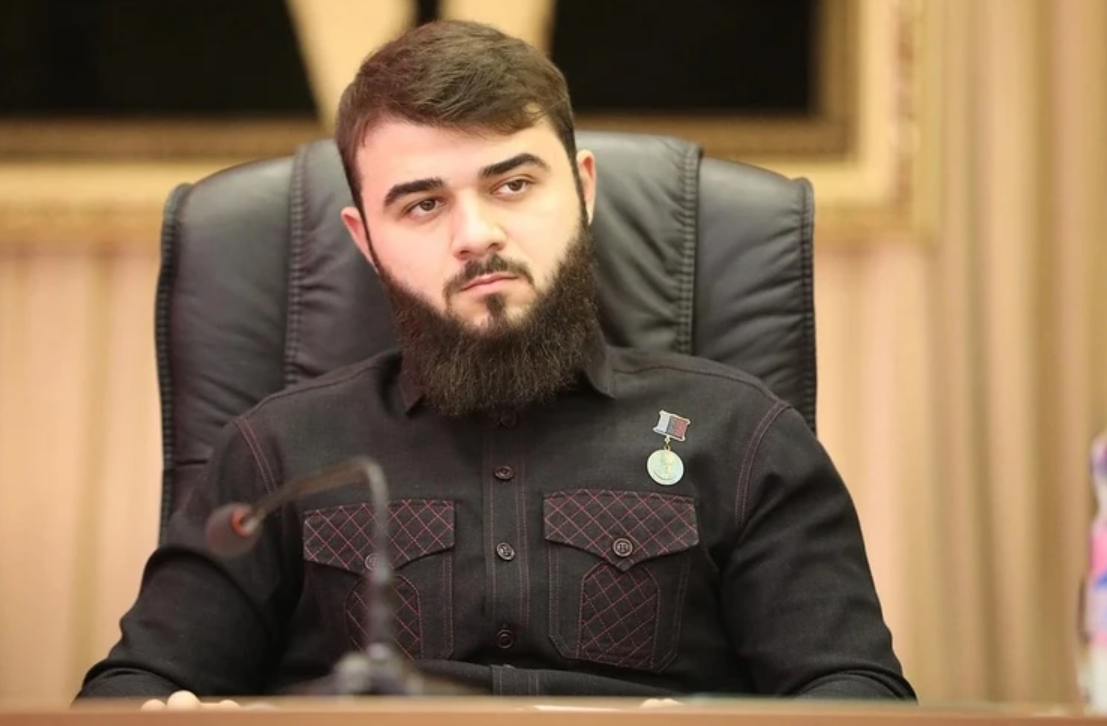
In turn, Zargan’s husband, Ramzan Cherkhigov, has served as an aide to the Head of Chechnya. He headed the Ministry of Transport and Communications until June and was succeeded by his son Adam in June. Their other son, Idris, serves as Chief of the Republic’s Traffic Police Department (GIBDD).
Among other names in the ‘family list’ are Khozh-Baudi Daaev (a paternal cousin of Ramzan), who previously served as Minister of Culture and is now Minister of Education; Idris Baysultanov (a cousin), who has held post the advisor to the head of Chechnya; and Odess Baysultanov — another cousin who has pursued a federal career and currently serves as Russia’s Deputy Sports Minister.
‘I think one of the most influential members of the Kadyrov family is his relative [fourth cousin] Khas-Magomed. He became mayor of Grozny after a rapid rise and was even temporarily removed from office for excessive ambition. But now he is once again on good terms with Ramzan and leads several important projects’, Chambers told OC Media.
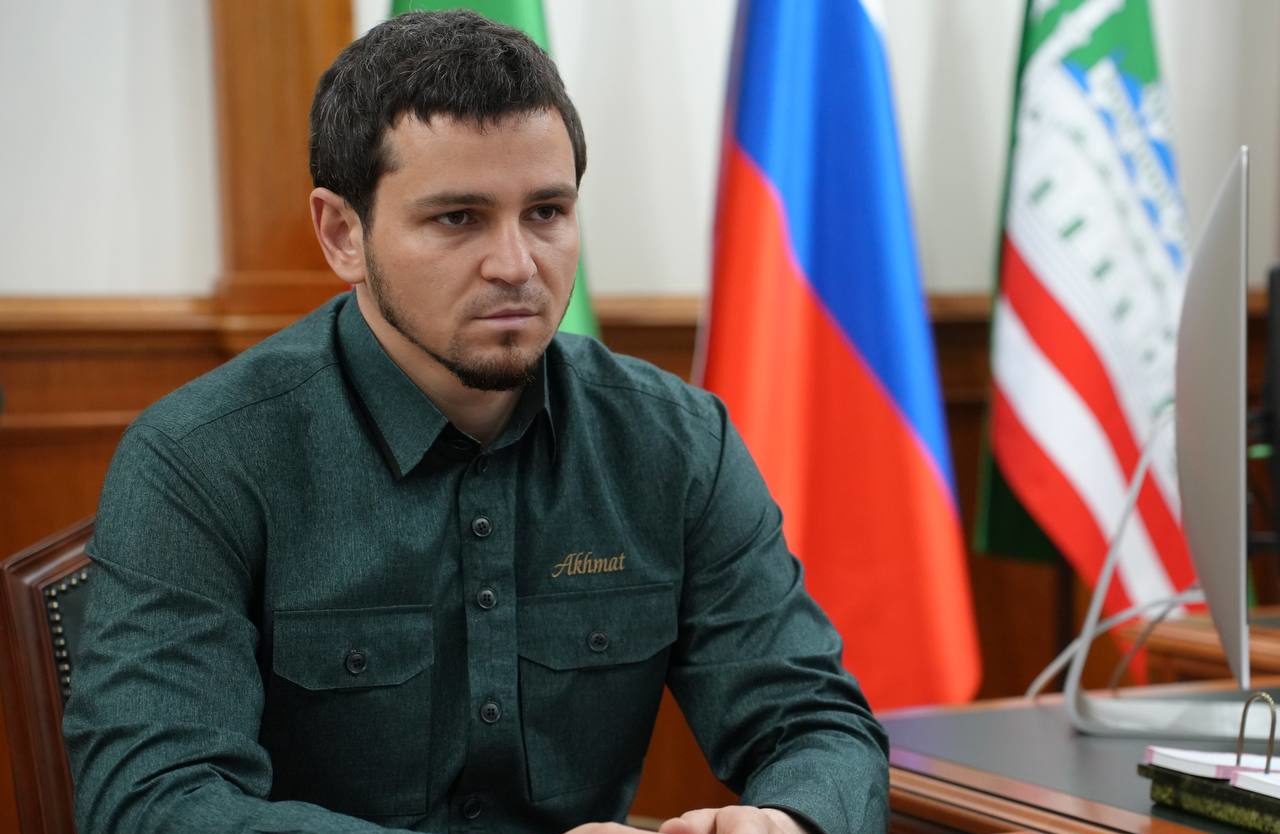
According to Chambers, listing all of Kadyrov’s relatives in power is quite difficult.
‘Much depends on how broadly you are prepared to define “relative”. It is also complicated by the fact that many of Ramzan’s closest relatives are his children — representatives of a new, younger generation. Yet at the same time, they do not currently wield much influence or power, as many have only recently entered public structures or are still underage, as is the case with Adam Kadyrov’, Chambers emphasised.
An extended clan network
The ‘Delimkhanov clan’ also deserves special mention — they are Kadyrov’s closest associates. Adam Delimkhanov — a State Duma deputy, cousin, and right-hand man of Kadyrov — is mentioned in virtually all discussions about a possible successor to power. Back in 2009, Ramzan Kadyrov publicly named him as the person who could replace him: ‘I have prepared a man who can replace me. That is Adam Delimkhanov', he said in an interview.
Since then, Delimkhanov has remained a key figure in the regime — overseeing security projects (including commanding Chechen ‘Kadyrovite’ units in Syria and later in Ukraine), executing the Kremlin’s most sensitive assignments, while not formally part of the regional government.
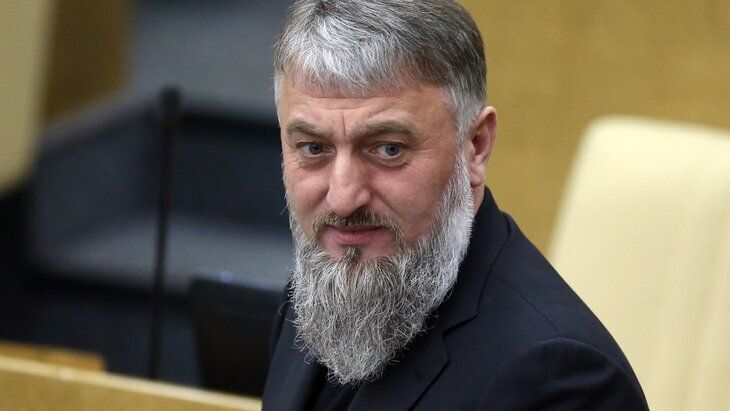
Delimkhanov has served in the Chechen Parliament since 2007. Though he has never spoken from the podium, his influence goes far beyond parliamentary duties. Under him, his own ‘mini-vertical’ has formed, wherein his brothers hold high-ranking positions in the security structures: Alibek Delimkhanov serves as a lieutenant general and a First Deputy Commander of the North Caucasus District of the Russian Federal Guard (Rosgvardiya); Sharip Delimkhanov heads the Rosgvardiya in Chechnya, also with the rank of lieutenant general; and Amkhad Delimkhanov works as a ‘Chief Inspector of the Ministry of Internal Affairs Inspectorate’. Thus, the Delimkhanov family is unique in modern Russia — three blood brothers simultaneously hold general ranks and Hero titles.
Delimkhanov also extends his influence through his relatives: for instance, Amkhad Delimkhanov’s eldest son, Akhmat-Hadzhi, as previously mentioned, was recently appointed Deputy Minister of Sports under the young Akhmat Kadyrov.
‘Delimkhanov has long been Ramzan’s right hand, knows all the secrets, organised operations against Russian businesspeople inside Russia, and assassinations abroad. He is directly connected to the Kadyrov clan through marriage, since his grand-niece is reportedly married to [Kadyrov’s second-eldest son] Ali Kadyrov’, Chambers emphasised.
Magomed Daudov — Speaker of the Chechen Parliament and effectively the republic’s second-in-command — plays an equally important role. A former security officer with the call sign ‘Lord’, Daudov has for many years headed Kadyrov’s administrative apparatus and is considered his most ruthless enforcer. He personally oversaw the suppression of dissent whereby he became notorious for organising public floggings of those who had ‘misbehaved’, and arranged blood feuds against the families of regime opponents.

In recent years, Daudov has actively promoted his own son into government structures — as mentioned earlier, his heir was appointed deputy to the young Minister of Sports, Akhmat Kadyrov. Many analysts believe that Daudov could play the role of regent during a transitional period if Ramzan Kadyrov’s underage son were nominally appointed as leader, or even become head of the republic himself as a compromise figure, provided Moscow agrees.
The third key group is the Vismuradov family. Abuzayd Vismuradov — also known as ‘Patriot’ — for many years commanded Kadyrov’s personal guard (the Terek special unit), led the Akhmat combat sports club, and was regarded as Ramzan’s closest adjutant. His family has now become linked to the Kadyrovs through marriage, further solidifying the alliance. As previously mentioned, Abuzayd’s son married Kadyrov’s daughter Tabarik and received a ministerial post. Ramzan Vismuradov, in effect, represents his father’s interests and continues his line. Experts believe that after Ramzan Kadyrov’s departure, centres of influence may form around the figures of Delimkhanov, Daudov, and Vismuradov — potentially competing with one another.
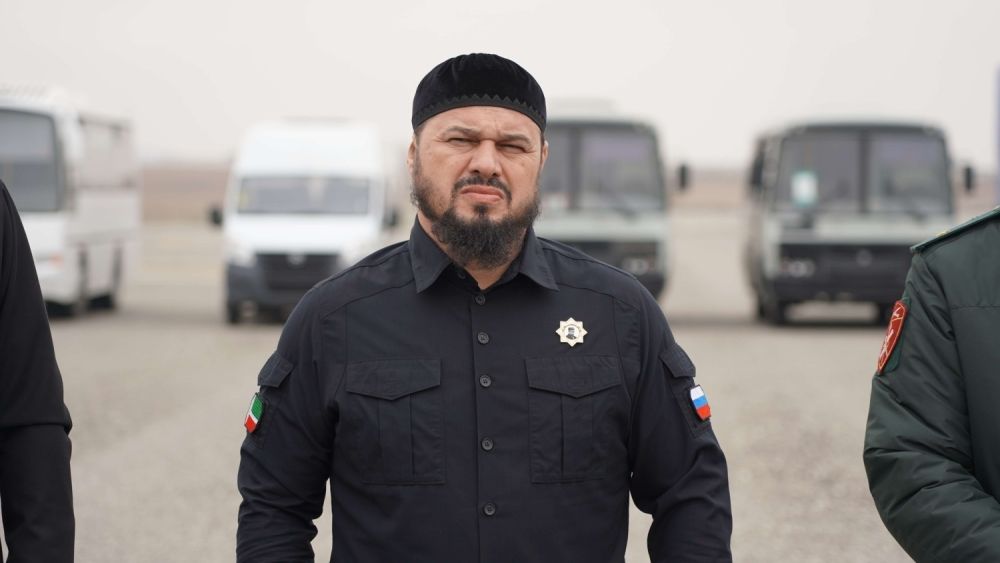
‘All decisions are in any case coordinated with him [Ramzan], but three people in his circle are more important than the rest. That’s the ‘Lord’’, of course, then undoubtedly the Delimkhanov brothers, and ‘Patriot’. But he [the ‘Patriot’] only makes decisions related to Kadyrov’s personal security. He is his closest man and is always at his side. That’s it, just those people. Even his sons — that’s not serious’, the Moscow-based political scientist told OC Media.
At the same time, the political scientist believes that, in fact, neither Kadyrov’s associates nor his relatives mean anything on their own.
‘These are people with absolutely no foundations, who were appointed solely by Kadyrov’s personal decision — because he can afford it. Under any other leader, none of them would have achieved anything or been involved in power, as they are simply not qualified’, he said.
Kutaev, Head of the Assembly of the Peoples of the Caucasus, also emphasised that Kadyrov’s entourage cannot be viewed as independently influential figures.
‘The federal centre once chose Ramzan Kadyrov as the key figure for Chechnya, and they haven’t changed those terms. There can be no talk of any initiative coming from Chechnya. Initiative could only come from the federal centre, but neither I nor my sources close to the situation see any signs of that. None of Kadyrov’s entourage — not even his adult children — possess any understanding of public institutions’, Kutaev claimed.
A business empire under the family crest
The Kadyrov family’s control extends not only to official positions but also to the Chechen economy. Formally, a significant portion of enterprises, construction projects, and investment funds in Chechnya belongs to the state or private individuals, but nearly all of them are affiliated in one way or another with the head of the region. The central financial institution is the Akhmat Kadyrov Foundation, headed by Ramzan’s mother, Aimani Kadyrova.
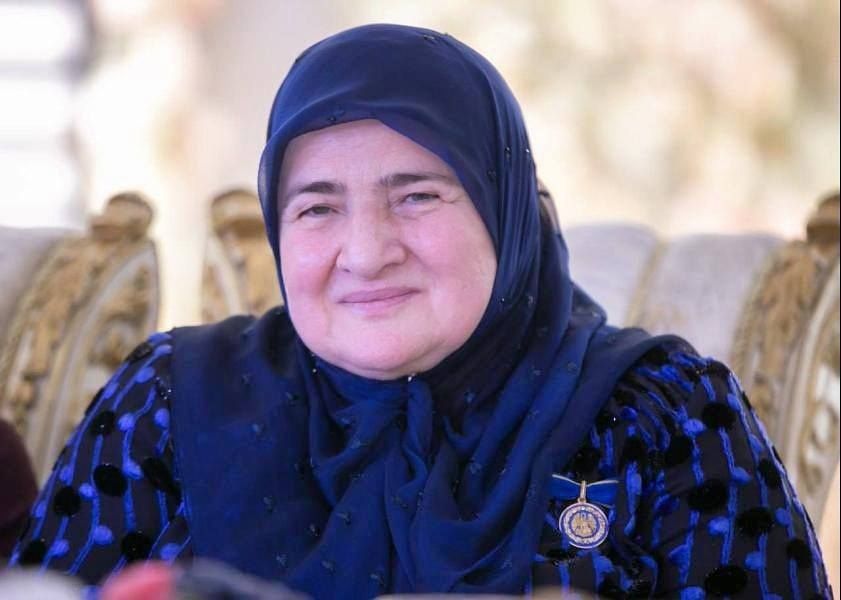
This charitable foundation accumulates vast sums — from compulsory ‘donations’ by businesspersons to federal subsidies — and spends them at the family’s discretion, financing construction, social campaigns, and Kadyrov’s personal initiatives. The foundation effectively operates as a parallel budget for Chechnya, not accountable to the federal treasury. Through it, the clan manages resources, rewards the loyal, and punishes the disobedient by economic means.
‘I would name Kadyrov’s mother as one of the few family members who may actually influence decision-making’, Kutaev said.
In addition to the foundation, a cluster of private firms has sprung up around the Kadyrov family. Journalists have discovered that many of them include the prefix ‘Beno’ (from the name of the Benoy teip, or clan, to which the family belongs) — such as companies like Benofon and Benodent. According to the Russian independent media outlet Proekt, these firms are controlled by Kadyrov’s relatives and their partners, who oversee the republic’s financial flows.
A special role is played by Chechnya’s so-called number one ‘oligarch’ — Movsadi Alviev. This businessperson, little known to the general public, is reportedly Kadyrov’s primary financial confidant. Passed through Alviev’s structures are multimillion-dollar contracts in construction, real estate, and trade. Interestingly, a sort of ‘bridge’ between the Kadyrov family and the Alviev clan became Kadyrov’s daughter Tabarik: her company IRS Grupp established several joint ventures with firms linked to Alviev’s sons and relatives. Other prominent families have also entered this business orbit — the Khizrievs, Tsakaevs, and Shahidovs.
Moreover, through Alviev’s companies, there appears to be a connection to Kadyrov’s alleged second wife — Fatima Khazueva. According to media reports, Fatima — a former Miss Chechnya — became Ramzan’s ‘secret’ wife around 2006 and received luxurious properties in Moscow and Dubai as gifts.
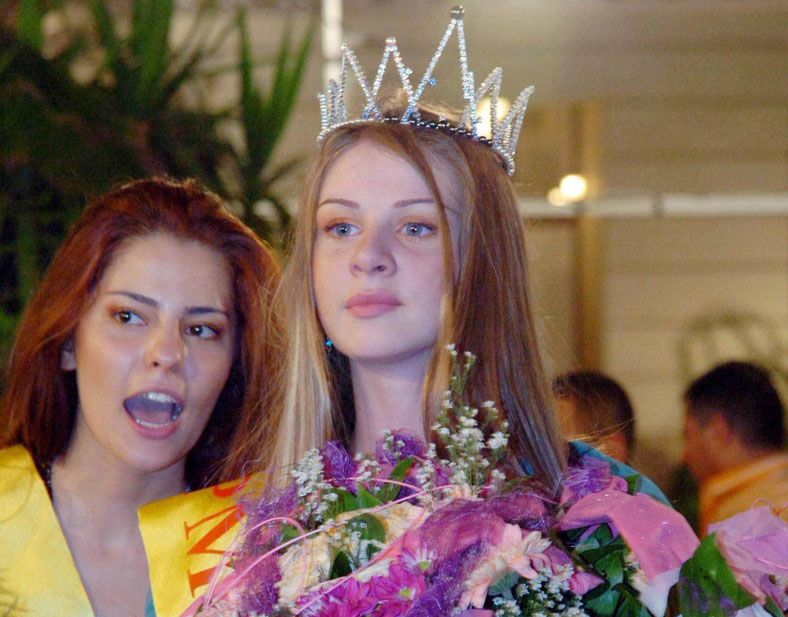
Although polygamy is officially banned in Russia, Kadyrov has openly advocated for its legalisation and, according to investigators, has at least four wives (besides Medni and Fatima, Ramzan is allegedly married to Aminat Akmadova and Zamira Dzhabrailova — the latter is reportedly the mother of Adam Kadyrov). None are publicly involved in politics, but all enjoy privileges and conduct business projects under the patronage of the Chechen leader.
Moscow, Kadyrov, and the succession question
The name Ramzan Kadyrov has become synonymous with relative order in post-war Chechnya — at least, that is how the federal centre presents it. Putin has consistently demonstrated support for Kadyrov, turning a blind eye to the feudal nature of his rule, as Kadyrov guarantees loyalty and ‘quiet’ in the North Caucasus. However, in recent years, the issue of succession in the republic has become more urgent than ever. In autumn 2023, several sources reported a sharp deterioration in the health of the then-46-year-old Kadyrov. Rumours circulated of his coma and even death — later denied — but there is no smoke without fire: Ramzan has clearly gained weight and periodically disappears from public view, which has fueled speculation about illness.
In the event of Kadyrov’s sudden departure, various scenarios are possible. The Kremlin is unlikely to allow a power vacuum: it would most likely swiftly appoint an acting head of Chechnya, who would then formally win an election. But whom they would choose remains an open question. Kadyrov clearly seeks to pass the reins of power to one of his sons. However, a more realistic option is a compromise figure from his inner circle, acceptable to both Moscow and the clan itself. The name most often mentioned is Adam Delimkhanov: he is experienced, loyal to the family, and simultaneously a Kremlin appointee. Another candidate is Magomed Daudov, a long-time figure in governance and head of the security bloc.
A collegial model is also possible: with a nominal young head (for example, one of Kadyrov’s sons, until he ‘matures’), real control could be exercised by several figures representing the main power groups (namely Delimkhanov, Daudov, and Vismuradov). However, such a triumvirate model is fraught with conflicts between factions and could destabilise the republic. Furthermore, they are all part of the same clan, and their rivalry could spiral out of control without an arbiter in the form of Ramzan.
‘When Aishat was in power, everyone said she was the successor. Then, with a snap of the fingers, Aishat was gone, and Adam became the successor — because he gets two or three medals a month. But that’s not serious. Only someone completely out of their mind could come up with such a notion — that Adam Kadyrov is the successor and so on. Even though Russia doesn’t always follow the law, the minimum age of 30 hasn’t been abolished — not even for Kadyrov. He had to settle for being prime minister until he reached the required age before becoming president. But no one is going to wait 13 years for Adam’, the Moscow-based political scientist said.
According to Kutaev, Kadyrov never truly prepared a successor for himself.
‘If it were up to him, he would have sent his children all over the world long ago. He has enough money to give each of them a couple of billion dollars to live in comfort. It is the presidential administration’s handlers who choose among his children who might become his successor. Most likely, they’ve been testing all of them — including the girls — which is why they were pulled into public roles as mayors, deputy prime ministers, ministers. But I think the selection stage has passed, and the Kremlin has likely placed its bet on Adam Kadyrov’, Kutaev said.
‘Initially, the daughters were hastily mobilised because of Kadyrov’s deteriorating health, and something urgent needed to be done — he had to be replaced by a family member, and the girls were the oldest. But now his health, as far as I can tell, has stabilised’, Kutaev continued.
According to Chambers, when discussing succession, the key question is whether Kadyrov will outlive Putin.
‘And if not, will the current model of relations between Grozny and Moscow be preserved, or will there be an attempt to change the status quo? If everything remains the same — and that is only possible if Putin stays in power — then an attempt will likely be made to transfer power to one of the children, with someone appointed as acting head until they come of age. If Putin is no longer around, everything could become unpredictable’, Chambers suggested.
In his view, everything will depend on how the new president perceives the situation — whether he wants to preserve old arrangements or establish new rules.
‘This also depends on how stable Moscow considers the situation in Chechnya. Last year was probably the worst for the Kadyrov clan — from arson attacks to assaults on security forces. These events raised serious doubts about the Kadyrovites’ ability to maintain stability. If such incidents continue, questions about the clan’s ability to hold on to power will only grow. That’s why the issue of who may become acting head of the region if Ramzan steps down is being discussed more and more’, Chambers said.
He believes that if Kadyrov succeeds in implementing his plan, he would undoubtedly want to pass power to his son Adam.
‘But he needs to hold on for more than ten years for everything to go according to plan. Given his health, it’s hard to imagine he can last that long. I think the real question is how many more years he can remain in power. And most importantly — whether they manage to find a loophole in the law allowing Adam to officially take office before the current legal age. In all likelihood, this is being done with Putin’s blessing’, he speculated.
The federal centre will remain the key player
Over the years of Kadyrov’s rule, Putin has repeatedly demonstrated that he values Kadyrov’s personal loyalty and ability to keep Chechnya under control. At the same time, the Kremlin has tried not to create irreplaceable regional ‘sultans’ with no alternatives. The examples of Daghestan and Ingushetia show that Moscow is capable of removing even the most powerful regional leaders if it believes their influence threatens federal interests.
In Kadyrov’s case, the situation is special: he is not just a regional head but a symbol of the end of the Chechen war, and his removal would have to be carefully calculated to avoid igniting a new conflict. Many believe that as long as Putin is alive, he will not give up Kadyrov — his role in the system is too significant, from involvement in the war against Ukraine to suppressing dissent within Russia. Nevertheless, health and age are relentless, and the Kremlin will find a replacement for Kadyrov. In this, the Kadyrov clan will have to fully trust the will of the federal centre.
For now, Ramzan Kadyrov and his large family continue to rule Chechnya as their own fiefdom — presenting a united front of loyalty to Moscow while behind closed doors constructing a complex system of internal agreements aimed at keeping the dynasty in power for as long as possible.



